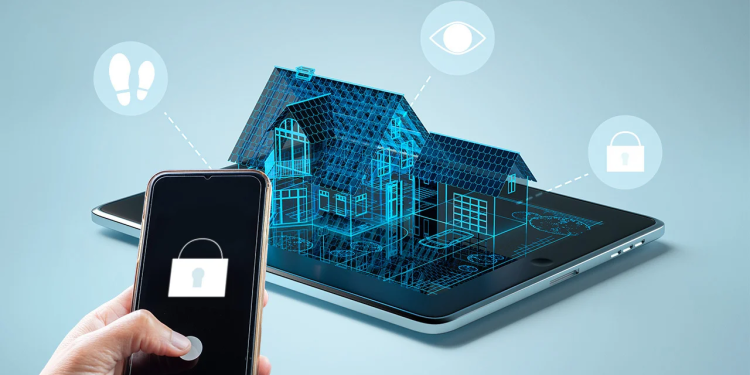A Homeowner’s Guide to Understanding Security Systems and Their Benefits

In today’s world, ensuring the safety of your home and loved ones has become more crucial than ever. A comprehensive security system not only protects your property from potential threats but also provides peace of mind. This guide aims to help homeowners understand the different types of security systems available, how they work, and the benefits they offer in safeguarding your home.
1. What Are Security Systems?
A security system is a combination of electronic devices designed to detect unauthorized entry and alert homeowners or authorities. These systems can include alarms, surveillance cameras, motion detectors, access control systems, and more. The goal of a security system is to deter burglars, monitor your property, and respond swiftly in case of a security breach.
2. Types of Security Systems
Understanding the different types of security systems is essential when selecting the right one for your home. Below are the most common options:
- Monitored Security Systems: These systems are connected to a central monitoring station that tracks alarms in real time. If a breach occurs, the monitoring station notifies emergency services.
- Unmonitored Security Systems: These systems typically include alarms and cameras that trigger when motion is detected. However, they do not send alerts to a monitoring station, meaning the homeowner must react to the alarm manually.
- Wireless Security Systems: Wireless systems use radio frequencies to communicate between devices. They offer flexibility in installation and can be managed remotely through a smartphone or computer.
- Smart Security Systems: These systems integrate with your home’s smart devices, such as smart locks, thermostats, and lighting systems. They allow homeowners to control and monitor security features remotely via apps.
3. Key Components of a Security System
To ensure your security system provides the level of protection you need, it’s important to consider its core components:
- Alarms and Sirens: These are triggered when an intruder is detected. Loud sounds alert the homeowner and passersby, discouraging the intruder from proceeding further.
- Surveillance Cameras: Cameras capture video footage of activity on your property. Modern systems often allow you to stream live video or view recorded footage remotely.
- Motion Detectors: These sensors monitor movement in a defined area. They can be installed inside or outside and are designed to activate alarms if movement is detected.
- Access Control Systems: These systems control who enters and exits your home. They include keyless entry, fingerprint recognition, and even remote access features.
- Environmental Sensors: These devices detect threats like smoke, carbon monoxide, and water leaks, further enhancing your home’s safety.
4. The Benefits of Security Systems
Investing in a security system offers numerous benefits that go beyond simply preventing burglaries. Here are some key advantages:
- Crime Prevention: The presence of security systems, including visible cameras and alarms, is a strong deterrent to potential burglars. Research shows that homes with security systems are less likely to be targeted.
- Peace of Mind: Knowing that your home is protected gives you peace of mind, especially when you’re away or asleep. With many systems offering remote monitoring, you can stay informed about your property at all times.
- Emergency Response: In the event of a break-in, fire, or medical emergency, security systems can trigger an immediate response from authorities. This fast action can significantly reduce the potential for loss or damage.
- Insurance Benefits: Some insurance companies offer discounts to homeowners with security systems. This is because homes with enhanced security are less likely to experience costly claims due to break-ins or damage.
- Remote Monitoring and Control: Many modern systems allow homeowners to monitor their property remotely via mobile apps. Whether you’re at work or on vacation, you can stay connected and control various aspects of your security system, from locking doors to adjusting cameras.
5. Choosing the Right Security System for Your Home
Selecting the right security system depends on your specific needs and budget. Consider the following when making your decision:
- Home Size and Layout: Larger homes or properties with multiple entry points may require a more extensive security system with multiple cameras, sensors, and alarms.
- Lifestyle Needs: If you travel frequently or have a second home, opt for a system that offers remote monitoring and control.
- Budget: While it’s tempting to invest in high-end security systems, there are options for all price ranges. Determine your budget and explore systems that provide the best value for the protection you need.
- Professional Installation vs. DIY: Some security systems require professional installation, while others can be set up by homeowners themselves. If you’re looking for convenience and expert support, a professionally installed system might be the better choice.
Conclusion
In conclusion, security systems are an invaluable investment for homeowners, offering enhanced protection, peace of mind, and numerous other benefits. By understanding the various components, types, and advantages of security systems, you can make an informed decision about which solution best fits your needs. Whether you opt for a monitored system, a smart setup, or a basic alarm, investing in security is an essential step toward safeguarding your home and loved ones.


